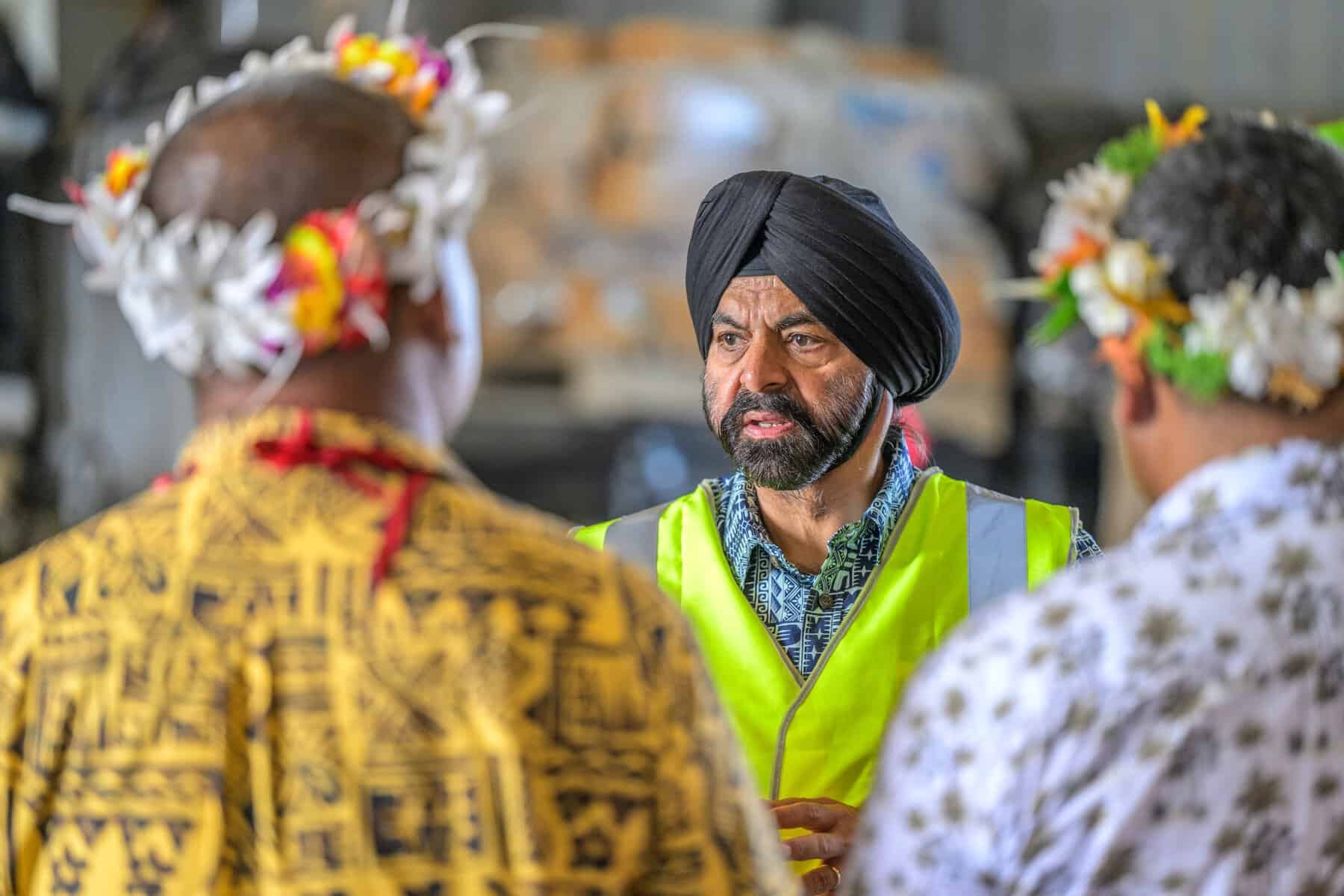World Bank President, Ajay Banga made a historic visit to Tuvalu Friday, becoming the first head of the global financial institution to set foot in the climate-threatened Pacific nation.
During his visit, Banga witnessed the acute impacts of climate change and outlined his vision for the World Bank’s role in addressing the crisis.
Banga’s journey to Tuvalu is part of a broader tour of Pacific Island nations most vulnerable to climate change. It’s the first time a World Bank president has visited the country, a gesture that was warmly welcomed by Tuvalu’s government and its people.
Banga’s visit included meetings with Prime Minister Feleti Teo, youth and community representatives, where he listened to the community’s fears and aspirations in the face of rising sea levels and environmental degradation.
The Pacific tour marks the final stage of Banga’s commitment to visiting every region where the World Bank operates since taking on his leadership role.
In Tuvalu, he observed firsthand the devastating impacts of climate change on the low-lying nation, where the majority of the 11,000 residents live on atolls less than two meters above sea level, making them highly vulnerable to rising tides and severe weather events.
“It is so obvious on the ground here that they don’t have a problem with creating emission-heavy growth; they are basically suffering from the impact of climate change and what it’s doing to them,” Banga said during his visit.
He emphasised that under his leadership, the World Bank aims to make climate finance a more significant component of its efforts to reduce poverty in vulnerable nations.
Banga’s discussions with Tuvalu’s youth highlighted their deep concerns about the future. Many expressed fears that their “Plan B” might involve leaving their homeland—a heartbreaking prospect for those whose identity is closely tied to their land.
“It’s not just about infrastructure. “Adaptation and resilience are not only about physical structures; it’s about human infrastructure – ensuring people have the quality of life they deserve,” he said.
Among the youth Banga met was Grace Malie, who shared her personal connection to the climate crisis.
She recalled learning about climate change as an eight-year-old through conversations with her parents, who explained why their playgrounds were shrinking due to rising sea levels.
“It’s an emotional one, and it’s not a fair situation from our end that we are facing the brutal impacts of this crisis that we contribute very little to.
“What’s endangered is our identity to our land, our identity as Tuvaluans, and the future of our children and our descendants,” Malie said.
Malie reflected on the climate migration deal struck between Tuvalu and Australia last year, which will allow 280 Tuvaluans facing climate-related dangers to relocate annually starting next year. While the deal provides a safety net, Malie expressed mixed feelings about leaving her homeland.
“I love my country. I love my home, and I love doing what I do every day in Tuvalu. I wish to stay. I wish to remain here on the island. I wish for my children to experience the same that I live, excluding, you know, living through the impacts of climate change.”
Talua Nivaga, vice-president of the Tuvalu National Youth Council, echoed this sentiment, emphasising that migration should be a last resort.
“I’ve been an advocate for climate mobility, but it doesn’t mean that we are requiring the movement of people right now. What we are advocating for is a clear path for people to move when it comes to worst-case scenarios, and the Falepili Treaty has shown a clear path, but it’s supposed to be a Plan B, not a Plan A.”
Nivaga discussed with Banga the importance of creating jobs and providing skills training for young people on the island, including the skills necessary for those who might eventually migrate due to climate pressures.
“We need to equip our youth not only to survive but to thrive, whether they stay here or have to move,” he said.
Tuvalu’s deputy Prime Minister, Panapasi Nelesoni, stressed the importance of ensuring that climate finance reaches the Pacific Island nations that need it most.
Speaking to international journalists in Funafuti, Nelesoni highlighted how rising sea levels are already disrupting agriculture, making it harder to grow vegetables and worsening health problems.
“International Development Association(IDA) funding is very important because it is a grant given to us.
So right now, it is difficult for us to borrow money, and we like to see a continuation of that assistance from the rich countries, given the problem we have with climate change and sea level rise,” Nelesoni said.
For over 80 years, since its inception after World War Two, the World Bank has provided billions of dollars in loans to the world’s poorest nations. The International Development Association (IDA), a key arm of the World Bank, has been instrumental in providing grants to the 75 poorest countries, many of which are small island nations in the Pacific.
As part of his commitment to addressing the climate crisis, Banga pledged to advocate for the replenishment of IDA funds at this month’s United Nations General Assembly. His engagement with local leaders and communities highlighted the World Bank’s evolving role in addressing not just the economic but also the human dimensions of climate resilience.
